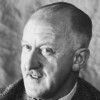Halldor Laxness

Halldor Laxness
Halldór Kiljan Laxness; born Halldór Guðjónsson; 23 April 1902 – 8 February 1998) was a twentieth-century Icelandic writer. Laxness wrote poetry, newspaper articles, plays, travelogues, short stories, and novels. Major influences included August Strindberg, Sigmund Freud, Sinclair Lewis, Upton Sinclair, Bertolt Brecht and Ernest Hemingway. He received the 1955 Nobel Prize in Literature; he is the only Icelandic Nobel laureate...
NationalityIcelandic
ProfessionNovelist
Date of Birth23 April 1902
CityReykjavik, Iceland
CountryIceland
Don't forget that few people are likely to tell more than a small part of the truth: no one tells much of the truth, let alone the whole truth. Spoken words are facts in themselves, whether true or false. When people talk they reveal themselves, whether they're lying or telling the truth.
Remember, any lie you are told, even deliberately, is often a more significant fact than a truth told in all sincerity.
My thoughts fly to the old Icelandic storytellers who created our classics, whose personalities were so bound up with the masses that their names, unlike their lives' work, have not been preserved for posterity.
Love of, and respect for, the humble routine of everyday life and its creatures was the only moral commandment which carried conviction when I was a child.
From the very first, my countrymen have followed my literary career, now criticizing, now praising my work, but hardly ever letting a single word be buried in indifference.
The world is a song, but we do not know whether it is a good song because we have nothing to compare it with.
It is a matter of simple fact that Icelanders have always been notoriously indolent.
I feel a physical happiness when spring is coming.
I spent my entire childhood in an environment in which the mighty of the earth had no place outside story books and dreams.
My motto is strong packaging, clear addressing.
It's an old saying that one still has to know something, despite everything.
When a man has a flower in his life he builds a house.
No one is so busy that he hasn't the time to dismantle a work of art.
The tyranny of mankind; it was like the obstinate drip of water falling on a stone and hollowing it little by little; and this drip continued, falling obstinately, falling without pause on the souls of the children.